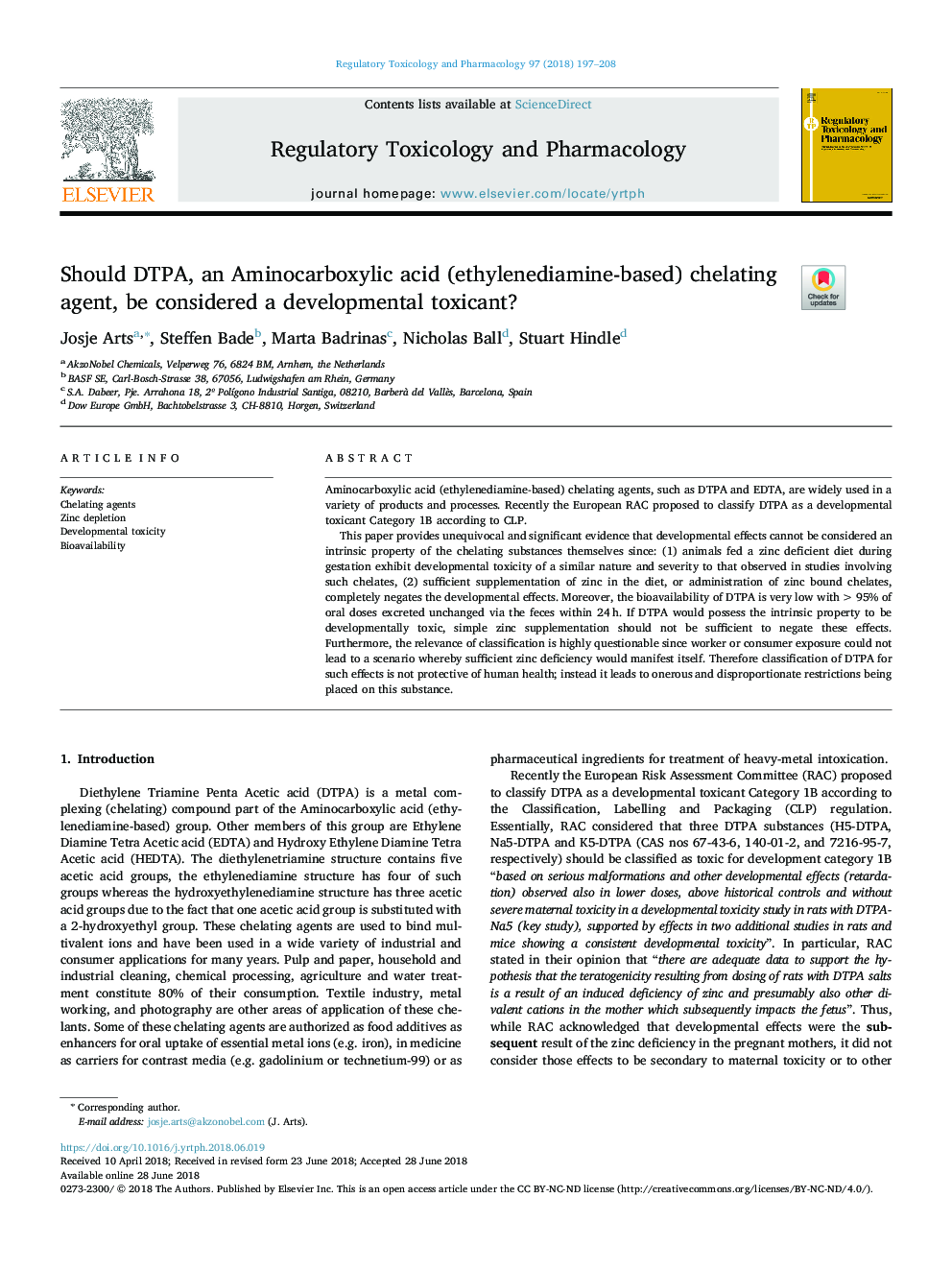| Article ID | Journal | Published Year | Pages | File Type |
|---|---|---|---|---|
| 8551029 | Regulatory Toxicology and Pharmacology | 2018 | 12 Pages |
Abstract
This paper provides unequivocal and significant evidence that developmental effects cannot be considered an intrinsic property of the chelating substances themselves since: (1) animals fed a zinc deficient diet during gestation exhibit developmental toxicity of a similar nature and severity to that observed in studies involving such chelates, (2) sufficient supplementation of zinc in the diet, or administration of zinc bound chelates, completely negates the developmental effects. Moreover, the bioavailability of DTPA is very low with >95% of oral doses excreted unchanged via the feces within 24â¯h. If DTPA would possess the intrinsic property to be developmentally toxic, simple zinc supplementation should not be sufficient to negate these effects. Furthermore, the relevance of classification is highly questionable since worker or consumer exposure could not lead to a scenario whereby sufficient zinc deficiency would manifest itself. Therefore classification of DTPA for such effects is not protective of human health; instead it leads to onerous and disproportionate restrictions being placed on this substance.
Related Topics
Life Sciences
Environmental Science
Health, Toxicology and Mutagenesis
Authors
Josje Arts, Steffen Bade, Marta Badrinas, Nicholas Ball, Stuart Hindle,
